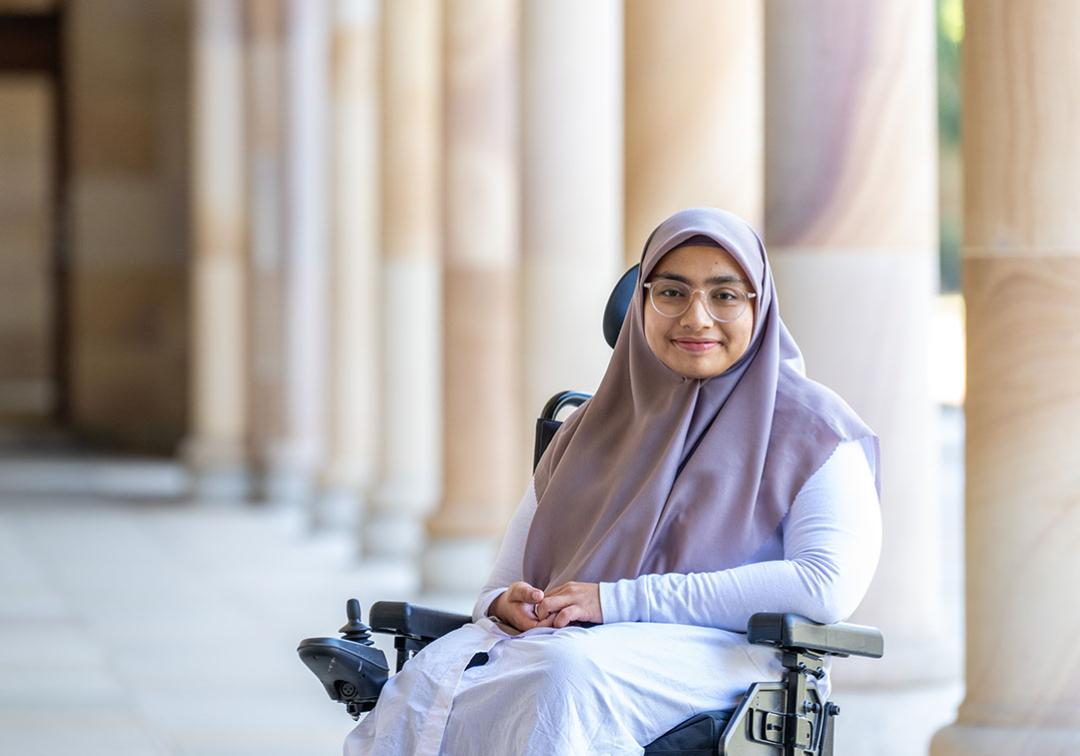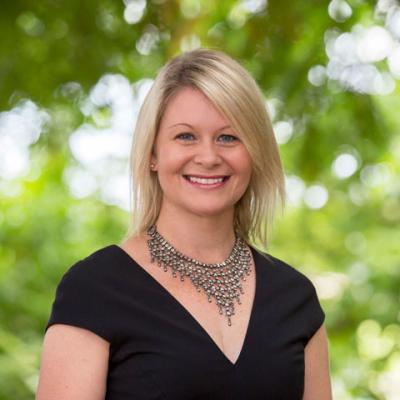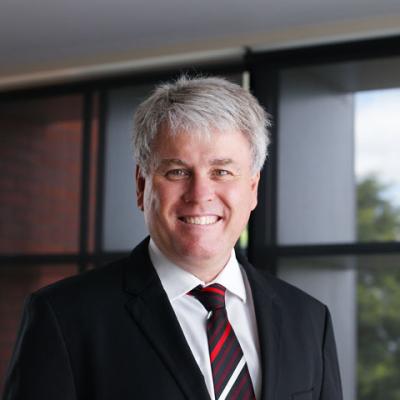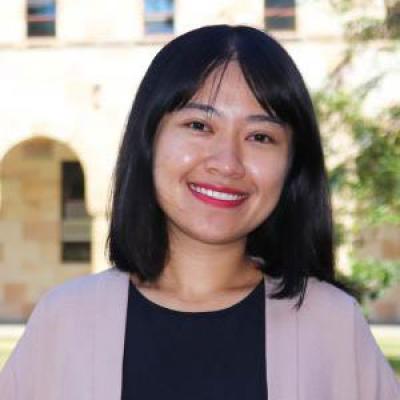
Master of Educational Studies
Overview
Strengthen your leadership expertise and get a professional advantage in your chosen area of education.
UQ’s School of Education has been preparing teachers for the world’s classrooms, industry, media and community leadership for 80 years, with programs and academics that lead the field. This program prepares you for a variety of employment opportunities in educational environments.
Specialise in one of 7 fields of study: Behaviour Support; Curriculum; Guidance, Counselling and Careers; Leadership; Psychology Education; Science of Learning or Inclusive Education. Depending on your area of specialisation (and which of over 50 courses you select), you can choose to complete all aspects of a practicum that focuses on advanced research and teaching interests.
Some pathways offer specific qualifications, while others offer significant professional advantage to educators interested in career advancement or broadening their career options.
Program highlights
- Strengthen your leadership expertise in educational practice, policy and theory.
- Obtain the knowledge and skills required for specialised fields of work.
- Gain qualifications that enhance career advancement and options.
- Improve your research skills by engaging in an extended research-based project.
Fields of study
Tailor your studies to suit your goals. This program offers these options:
- Behaviour Support
- Curriculum
- Guidance, Counselling and Careers
- Inclusive Education
How you'll learn
Your learning experiences are designed to best suit the learning outcomes of the courses you choose.
- Lectures
- Tutorials
- Work placements
- Overseas study
- Research experience
- Fieldwork
Placements and work experience
What you'll study
At UQ, degrees are called 'programs' and subjects are called 'courses'. Here's a sample of the courses you could study in this program:
- Global Indigenous Knowledge and Education
- Language in Education Planning
- Contemporary Theories of Development and Learning
- Teachers as Leaders and Innovators
Career possibilities
Postgraduate study can take you anywhere. Depending on which field you choose, here are some of the careers you could be on your way to:
- Behaviour management counsellor
- Special needs teacher
- Curriculum planner
- School curriculum adviser
- Career development practitioner
- Guidance counsellor
- School principal
- Educational administrator
- School counsellor
- Multicultural teacher
Professional registration
When you graduate, you may be eligible for registration with the following professional organisations. Contact the organisation to find out how to register.
- Australian Counselling Association
- Queensland Guidance And Counselling Association
Events
See all eventsStories
See all stories
Careers
Considering a career change from teaching?
5-minute read

Uni life
What’s it like to study a postgraduate degree in education?
6-minute read
Stories
See all stories
UQ people
Education without borders: Claudia’s vision for inclusive education starts at UQ
2-minute read

Careers
Considering a career change from teaching?
5-minute read
Entry requirements
Entry requirements
It's possible to complete this degree in 2 years, 1.5 years or 1 year depending on your qualifications and experience.
You can apply for any duration as long as you meet the entry requirements. You may also be eligible to apply for credit or exemptions to shorten your degree further. You'll graduate with the same qualification no matter how long you take to complete the degree.
2-year degree (32 units of study)
To be eligible to complete the degree in 2 years full-time (or part-time equivalent)full-time (only available as full-time study), you'll need:
- a bachelor's degree (or equivalent) in any discipline, or
- to have successfully completed 3 years of study towards an approved qualification at an overseas partner institution, with a formal pathway to the Master of Educational Studies (2-years duration).
You must have a grade point average (GPA) of 4.0 on a 7-point scale in your previous qualification.
1.5-year degree (24 units of study)
If you have relevant prior learning or experience, you can reduce the number of courses you need to complete and graduate in less time.
To be eligible to complete the degree in 1.5 years full-time (or part-time equivalent)full-time (only available as full-time study), you'll need:
- a bachelor's degree (or equivalent) in education, or
- a graduate certificate or graduate diploma in education, or
- a bachelor's degree (or equivalent) in any discipline, plus 2 years full-time equivalent relevant work experience (see below).
You must have a grade point average (GPA) of 4.0 on a 7-point scale in your previous qualification.
1-year degree (16 units of study)
If you have relevant prior learning or experience, you can reduce the number of courses you need to complete and graduate in less time.
To be eligible to complete the degree in 1 year full-time (or part-time equivalent)full-time (only available as full-time study), you'll need:
- a bachelor honours degree* (or equivalent) in education, or
- a bachelor's degree (or equivalent) in education, plus 2 years full-time equivalent relevant work experience (see below).
You must have a grade point average (GPA) of 4.0 on a 7-point scale in your previous qualification.
*You must have completed a substantial research project in your Honours degree equivalent to at least one semester of full-time study (or part-time equivalent).
Relevant work experience
Relevant work experience includes significant and substantive experience in:
- education contexts such as schools, service delivery agencies, government agencies, or
- alternative education settings working with children, adolescents or adults, with roles and responsibilities such as, teaching, program/curriculum development, assessment, educational leadership, administration, youth support, allied health, and sport sciences.
Evidence of relevant work experience should include a letter from your employer (and/or previous employers) stating the following:
- That you work (or have worked) within the specified educational setting
- The length of time that you were employed (i.e. 2 years)
- The capacity at which you worked (full-time, part-time* or casual*)
*if part-time or casual, please list the average number of hours worked per week.
Related programs
Depending on your previous qualifications and current goals, you might want to consider
one of these related programs:
English language requirements
IELTS overall 6.5; reading 6; writing 6; speaking 6; listening 6. For other English Language Proficiency Tests and Scores approved for UQ
TOEFL iBT (including Paper Edition) - Overall 87, listening 19, reading 19, writing 21 and speaking 19.
PTE Academic - Overall Score of 64 and 60 in all sub bands.
BE - A minimum overall grade of 4 plus a minimum grade of C in all macro skills.
CES - Overall 176 and 169 in all sub bands.
OET is not accepted.
There are other ways to meet the English language requirements. For some programs, additional conditions apply.
Student visas
International students who are accepted into full-time study in the Master of Educational Studies are eligible to apply for an Australian student visa (subclass 500).
There are a number of requirements you must satisfy before a visa is granted, including the Genuine Student (GS) requirement.
Additional application information
Additional application information
Fields of study
Fields of study
Tailor your studies to suit your goals. This program offers these options:
Fields of study
Tailor your studies to suit your goals. This program offers these options:
Fees and Scholarships
Indicative annual fee
Approximate yearly cost of full-time tuition (16 units). Your fees will vary according to your selected courses and study load. Fees are reviewed each year and may increase.
$5,190
2026
Approximate yearly cost of full-time tuition (16 units). Your fees will vary according to your study load. Fees are reviewed each year and may increase.
AUD $45,792
2026
Additional costs
- Blue Card or Exemption Card if undertaking Guidance and Counselling Field of Study.
- Students are responsible for the cost of transportation and accommodation to attend residential schools or practicals.
Government assistance
Financial aid
As an international student, you might be eligible for financial aid – either from your home country, or from the Australian Government.
HECS-HELP
Domestic places in the Master of Educational Studies are Commonwealth supported, as long as you meet all Commonwealth supported place eligibility requirements.
This means the cost of your education is shared between you and the Australian Government. Instead of tuition fees, Commonwealth supported students pay what are called student contribution amounts.
If you have a Commonwealth supported place, you may also be eligible for HECS-HELP. This is an Australian Government loan scheme to assist eligible students with the cost of their student contribution amounts.
Centrelink support
The Australian Government has approved this master's program for income support payments to be made to eligible students.
Scholarships
You may be eligible for more than 100 scholarships, including:
How to apply
Applying online
All international applications should be submitted to UQ. If you prefer, you can use an approved UQ agent near you.
The program code for the Master of Educational Studies is 5596.
This program is available in multiple durations. You can apply for any duration as long as you meet the entry requirements.
When you apply, select your preferred duration. If you don't meet the requirements for your first preference, we'll automatically consider you for entry into a longer duration.
Applying online
All domestic applications should be submitted to UQ.
The program code for the Master of Educational Studies is 5596.
This program is available in multiple durations. You can apply for any duration as long as you meet the entry requirements.
When you apply, select your preferred duration. You can also ask us to consider you for a longer duration if you don't meet the entry requirements for your first preference.
Important dates
The closing date for this program is:
- To commence study in semester 2 - May 31 of the year of commencement.
- To commence study in semester 1 - November 30 of the previous year.
Visa processing times vary. Apply and accept your offer as early as you can.
To learn more about UQ dates, including semester start dates, view the Academic Calendar.
Important dates
The closing date for this program is:
- To commence study in Semester 1 - January 31 of the year of commencement.
- To commence study in Semester 2 - June 30 of the year of commencement.
To learn more about UQ dates, including semester start dates, view the Academic Calendar.
Aboriginal and Torres Strait Islander applicants
For support with applying – or if you have any questions about university life – get in touch with our Aboriginal and Torres Strait Islander Studies (ATSIS) Unit.
Explore other programs
Express yourself. And your interest.
They say choosing a degree is hard, which is why we've made it easy. Register your interest and we'll send you everything you need to know about applying to UQ.






